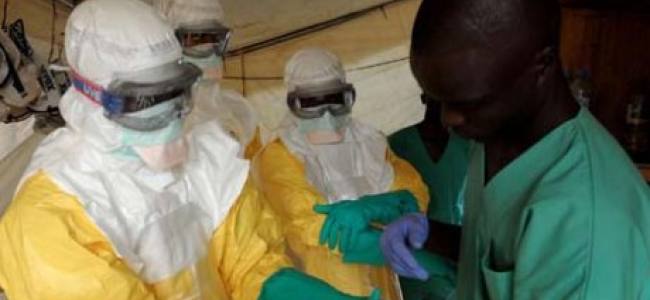
Ebola emergency grow up to grade 3
This report provides an update on UNICEF’s response to the Ebola emergency in Liberia. All statistics, other than those related to UNICEF support, are from the SitReps issued by the Ministry of Health and Social Welfare through the Ebola National Task Force.
Highlights:
· Since 23 July, 94 additional suspected, probable and confirmed Ebola cases, and 40 additional deaths of suspected, probable and confirmed cases were reported in Liberia. The new cases include a suspected case in Grand Gedeh County, 13 additional health workers and two American aid workers. The additional deaths include the first Liberian doctor to die of Ebola since the epidemic began.
· As of 28 July, the cumulative number of suspected, probable and confirmed Ebola cases reported during Outbreak #2[1] in Liberia stood at 352; the total number of suspected, probable and confirmed Ebola deaths during Outbreak #2 stood at 170; and the total number of suspected, probable and confirmed Ebola cases reported among health workers since the epidemic began stood at 45.[2]
· To date, confirmed Ebola cases have been reported in Bomi, Bong, Lofa, Margibi, Montserrado and Nimba Counties, and one suspected case has been reported in Grand Gedeh County.
· The WHO has upgraded the Ebola outbreak in West Africa to a Grade 3 [3] Emergency.
· President Ellen Johnson Sirleaf has declared a National Emergency due to the Ebola outbreak and has established a new Ebola National Task Force to coordinate the crisis. Under the new arrangement, the President will chair the Ebola National Task Force.
· The Government of Liberia has closed all borders except a selected number of major entry points, where preventive and testing centres will be established.
· Due to security and other concerns, Samaritan’s Purse will no longer support the Ebola treatment units in the Country. Meanwhile, Médecins Sans Frontières (MSF) has evacuated the Foya treatment unit, leaving a local team in place to manage it.
· In response to reports of a probable Ebola death among a staff member, the Ministry of Education is operating only with essential staff as of 29 July.
· UNICEF delivered an additional two cholera kits as well as beds, mattresses, bed sheets, gloves and digital thermometers to the MoHSW to support case management. The agency also additionally dispatched three 12-person teams of interpersonal communication (IPC) professionals to Bomi, Bong and Nimba to work alongside general Community Health Volunteers in raising awareness of Ebola.
· UNICEF’s budget for the Ebola outbreak response is US$ 1.59 million for the period between March and September 2014. The funding gap is US$ 960,000.
——-——-——-–
[1] Outbreak #2 began on 29 May.
[2] All statistics are drawn from MoHSW Ebola SitRep #74, which reports cumulative cases as of 23:00 on 28 July.
[3]Grade 3: a single or multiple country event with substantial public health consequences that requires a substantial WCO response and/or substantial international WHO response. Organizational and/or external support required by the WCO is substantial. An Emergency Support Team, run out of the regional office, coordinates the provision of support to the WCO.


